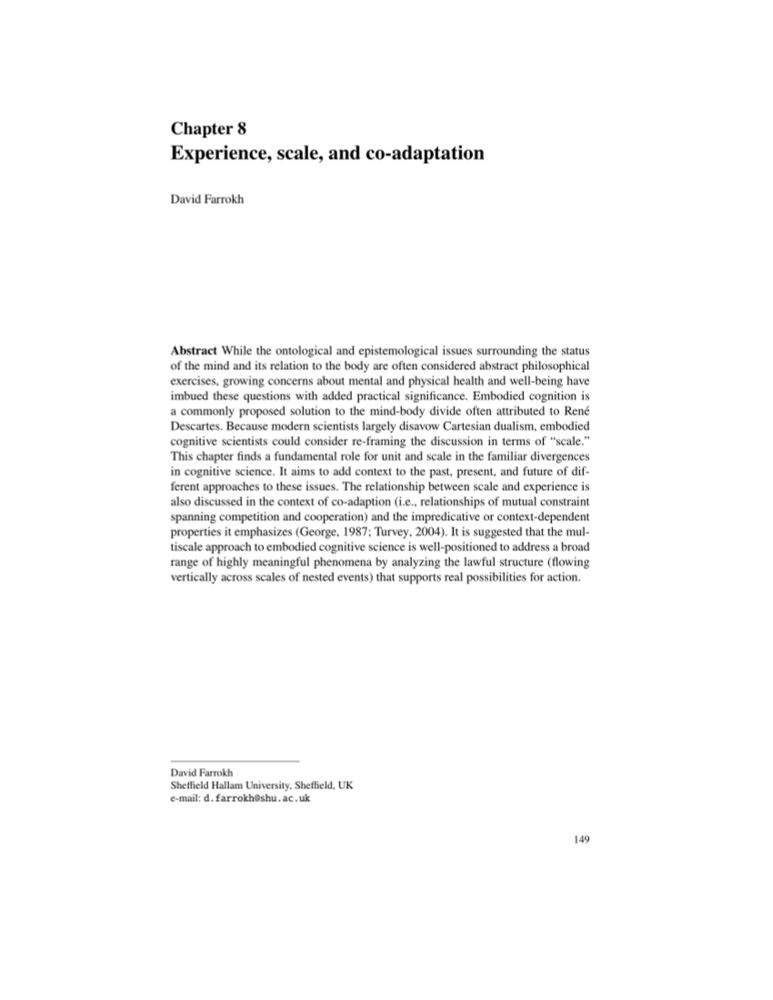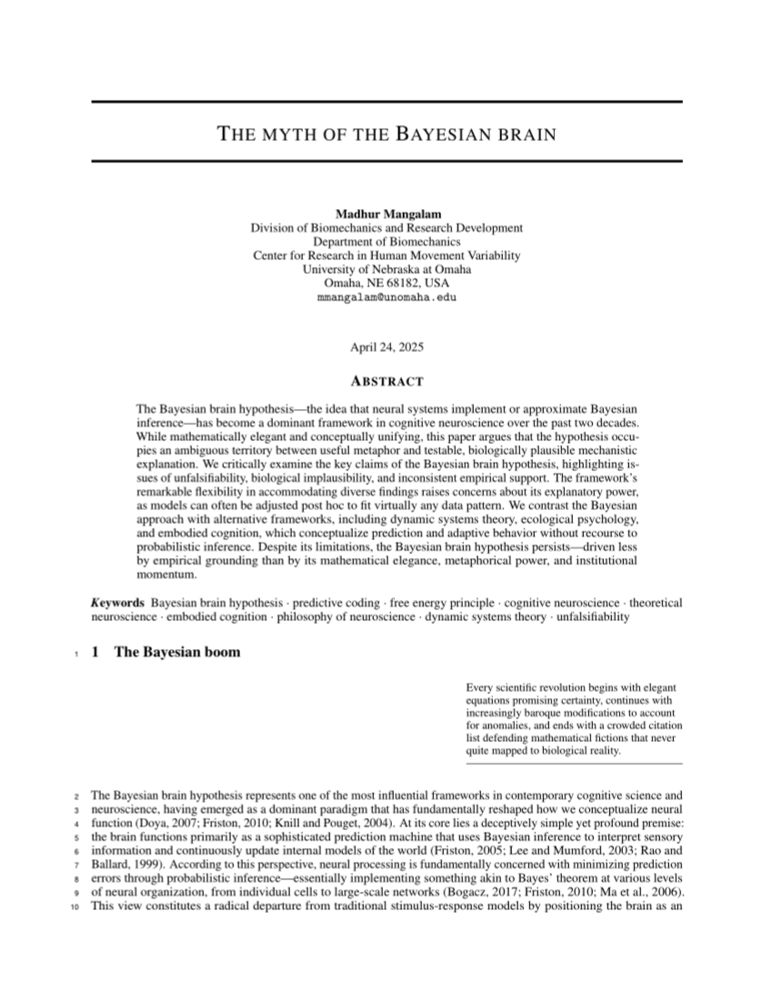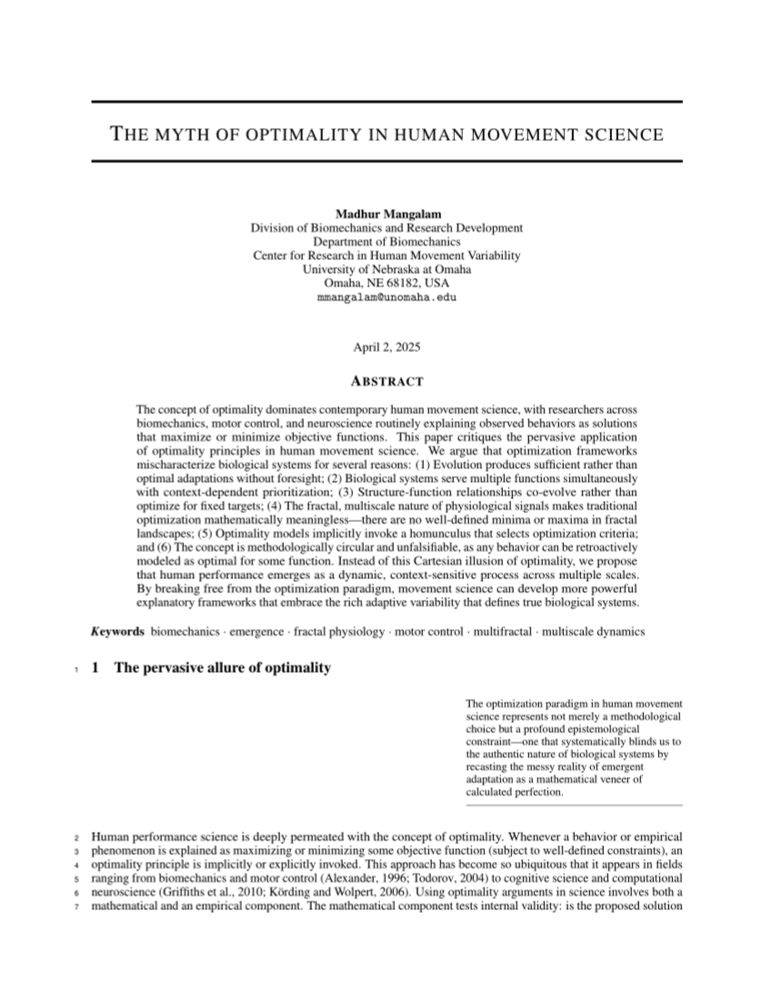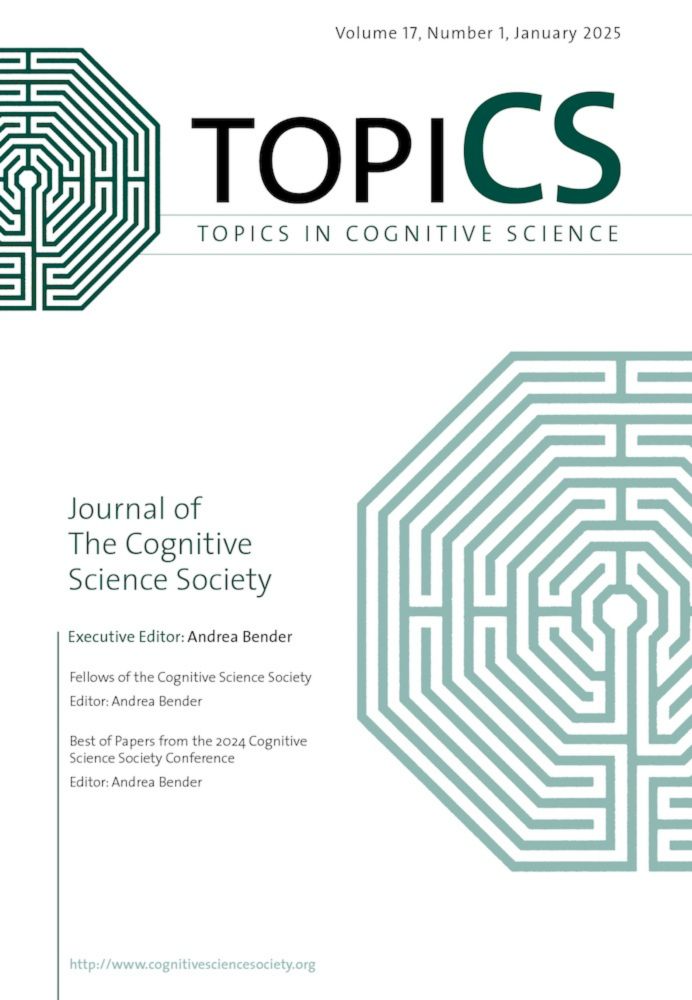Produced famous player x" or something like that.
I don't think these people would ever care what skill acquisition science finds. They are just not open to science a lot of the time, in my experience.
18.04.2025 23:08 — 👍 0 🔁 0 💬 1 📌 0
There are many training activities that are quite obviously motivated by the idea that skill acq is the storage of context-independent movement patterns.
I don't think it's some great evil for coaches to use those activities but the justification is usually just "well this coach did it and they
18.04.2025 23:08 — 👍 0 🔁 0 💬 1 📌 0
Thanks for signposting the barrett et al article, i hadn't seen it. What I mean by "received view" of skill is that coaches may not know or explicitly think about it but it pervades practice via copying and means you mention.
18.04.2025 23:08 — 👍 0 🔁 0 💬 1 📌 0
coaching practice, and I don't have data on the prevalence of these practices so I'd be open to changing my mind if shown convincing data to the contrary.
Curious on your thoughts.
16.04.2025 16:58 — 👍 0 🔁 0 💬 1 📌 0
I don't make it some big moral issue and I think kids being active, outside, interacting with caring adults is certainly a net positive so inefficient skill acq doesn't trigger me like it does some, but I do think we can do better.
Of course, some of this is anecdotal. I don't study
16.04.2025 16:58 — 👍 0 🔁 0 💬 1 📌 0
coaches right now (lovely people). What's painfully obvious is that the recieved view of coaching is centered around getting kids to repeat movements and then hopefully stand in the right areas of the pitch.
So, it does feel to me that this is where coaches start out more often than not.
16.04.2025 16:58 — 👍 0 🔁 0 💬 1 📌 0
training event it seems clear to me that this individual-level definition of skill still motivates practice design. Nick Gearing's work has also shown that football academy coaches are still attached to individual technical training.
Anecdotally, I'm working with a few new grassroots football
16.04.2025 16:58 — 👍 0 🔁 0 💬 1 📌 0
For example, practice fidelity will defined differently depending on whether you think skill is an adaptive functional performer-environment relationship or a property of the individual performer.
I still see a lot of advocacy for the latter, and if you roll up to a random youth sports
16.04.2025 16:58 — 👍 0 🔁 0 💬 1 📌 0
What evidence supports this form of inclusivity? I have a sense that supporters of mixing feel they are inherently less dogmatic or more nuanced, but is enforcing C (A+B) any different than enforcing A or B?
Second is the idea that CLA creates straw men.
16.04.2025 16:58 — 👍 0 🔁 0 💬 1 📌 0
that I find a bit concerning right now.
First is a sort of generic "both/and" inclusivity that doesn't allow for preference/selectivity.
I think we need to have a serious discussion about whether doing both A and B is actually doing A and B, or a third thing C.
16.04.2025 16:58 — 👍 0 🔁 0 💬 1 📌 0
Thanks for these thoughtful insights.
I think we've agreed that these LP vs NLP studies have key limitations as a general format (relying on group mean and assuming the purpose of skill acq research is to draw a box around around a set of activities).
But there are two trends in skill acq
16.04.2025 16:58 — 👍 3 🔁 0 💬 1 📌 0
Damian has arrived! Also, really enjoyed co-authoring this chapter with this group. Check it out here 👇
12.04.2025 12:07 — 👍 1 🔁 0 💬 0 📌 0
To my knowledge, Ripoll never tested this requirement empirically.
We have the data to answer this question now. Results will be out shortly!
28.03.2025 16:28 — 👍 0 🔁 0 💬 0 📌 0
Finally, Ripoll's claims echo Alan Newell's confidence in an independent "knowledge level" operating in distinction from physical dynamical processes.
This requires the process in question to unfold at a single, "vertically separated" timescale (Simon, 1977).
28.03.2025 16:28 — 👍 0 🔁 0 💬 1 📌 0
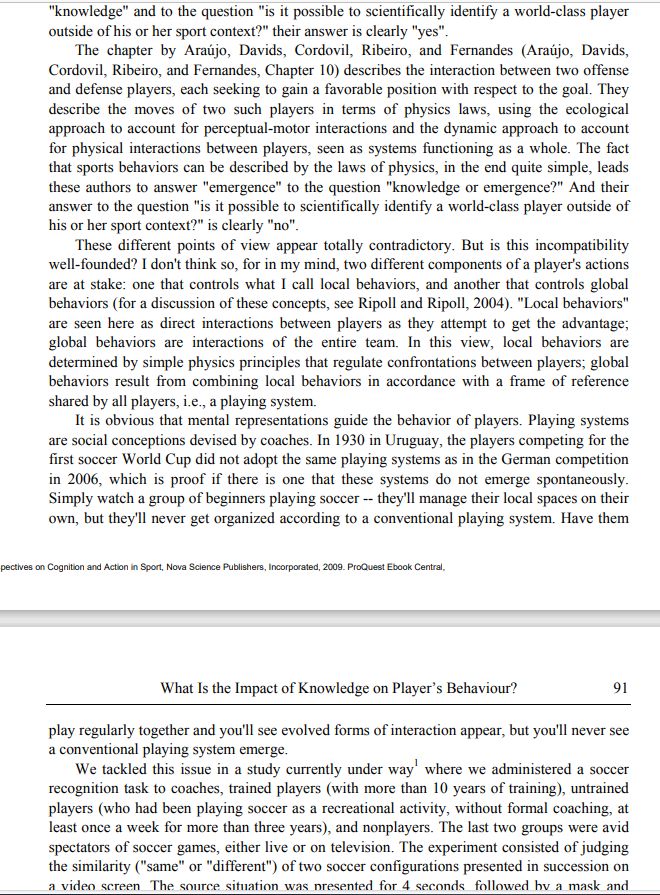
A rather puzzling statement from Hubert Ripoll here (perspectives on cognition and action in sport, Araujo, Ripoll, Raab eds.)
First of all, what is a "conventional playing system" if not an evolved form of interaction??
Second, if not from repeated interactions where the heck does it come from?
28.03.2025 16:28 — 👍 1 🔁 0 💬 1 📌 0
Transfer of calibration between hand and foot: Functional
equivalence and fractal fluctuations (Stephen & Hajnal, 2011)
link.springer.com/content/pdf/...
24.03.2025 13:28 — 👍 0 🔁 0 💬 0 📌 0
I'm far more likely to look at a specific academic's google scholar or researchgate page to see what they've been working on or read up on a topic/area.
Do I just not pay much attention to journals? Part of me wonders if it's a bit generational based on days of print journals.
Thoughts?
23.03.2025 23:01 — 👍 0 🔁 0 💬 0 📌 0
Question for academics: I often see academics speak about journal-specific readership. I'm curious how common it is for academics to follow journals.
Personally, I don't think "hmm let me see what's out in journal x".
23.03.2025 23:01 — 👍 0 🔁 0 💬 1 📌 0
it is grimly hilarious that, given the immense, decades-long fetishization of "leadership" and "leadership skills" in business-oriented academia and politics, even unto the formation of leadership institutes, there should turn out to be no leaders in any positions of power
14.03.2025 11:25 — 👍 2237 🔁 468 💬 48 📌 49
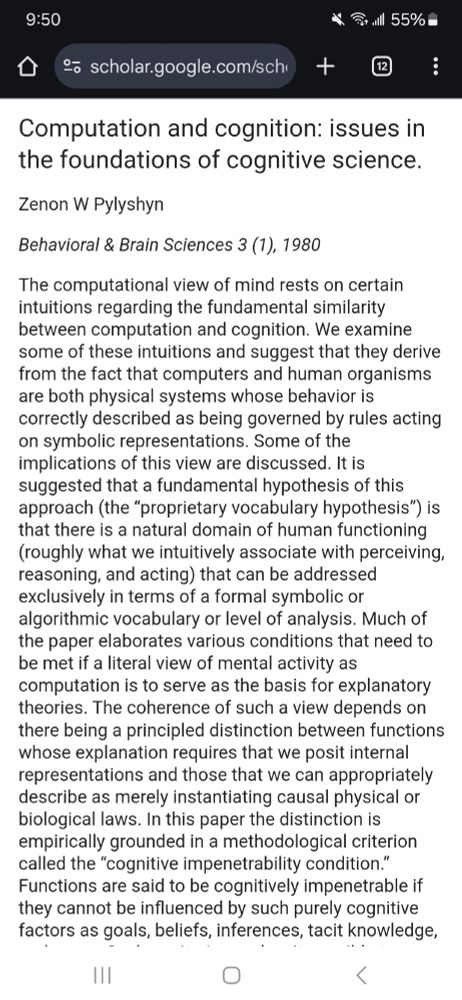
Interesting read. As an ecological psychologist I would have worried I was creating a straw man of mainstream cognitive science if I attributed some of those definitions to them 😂 Seems like Pylyshyn's 1980 definition is still influential.
08.03.2025 15:55 — 👍 3 🔁 1 💬 0 📌 0
This is a good overview of the type of empirical results that have often been unfairly dismissed by cognitive scientists.
www.researchgate.net/profile/Dami...
13.02.2025 16:22 — 👍 2 🔁 0 💬 0 📌 0
The question of whether someone can considered be a cognitive scientist without accepting mental representation as the hard core remains.
If no, then cog sci has to deal with the body of empirical results from these other fields.
If yes, then other forms of explanation must be acceptable.
13.02.2025 16:22 — 👍 1 🔁 0 💬 1 📌 0
but we are also told that these alternatives cannot constitute a competing paradigm/revolution because cog sci already includes these things.
It can't be both. If you want a pluralistic cognitive science you can't restrict explanation to a limited form of computational modeling.
13.02.2025 16:22 — 👍 1 🔁 0 💬 1 📌 0
The problem is that cognitive science wants it both ways when it comes to the "hard core" of computation over representation.
Strong empirical programs have been scoffed at and quickly dismissed because they didn't explain in these terms (see below)
onlinelibrary.wiley.com/doi/full/10....
13.02.2025 16:22 — 👍 3 🔁 1 💬 1 📌 0
Director, Centre for the Sciences of Place & Memory, Stirling Uni, Scotland. Skill, memory, embodied cognition, philosophy, cognitive history, cricket, music, collaboration, wayfinding. Leverhulme International Prof: johnsutton.net & placememory.net
Assistant Professor Studying Visual-Motor Neuroscience at the University of Cincinnati
ViLoN Lab https://vilonlab.github.io
Co-Founder of https://freemocap.org
Reads the mind by studying action
We are a collective of authors and researchers specializing in cognition, mental states, and psychology.
🔗 thinker-tank.net
philosophy PhD student: being-in-the-world, active inference, skilful coping, relevance
Scientist; Perception-Action Researcher; Professor of Psychology; Hockey player; occasional scuba diver
cognitive scientist.
intuitive theories, collaboration, cumulative culture, networks, philosophy of science/mind/bio, language. Also kettlebells.
past: @UMich @Yale @UChicago @stjohnscollege.
https://rchrdsnemory.github.io/site/
PhD - Skill Acquisition and Coach Learning
www.skilledathleticism.com
News stories, blog posts and podcasts with ideas and facts that intelligent and informed people would want.
https://radiofreeameri.ca/
🤖 Now Breezing v1.1.0
Bluesky's Trending Trend Words, on the :10s, every 10!
(trends weighted v. ~1 month of hist.)
🟢ONLINE!
Issues? Contact the Dev:
🦋 @nickwrightdata.ntw.app
💬(Signal): nickwrightdata.01
☕ https://ko-fi.com/nickwrightdata
Flâneur learning to think, wait and fast.
Mexican Historian & Philosopher of Biology • Postdoctoral Fellow at @theramseylab.bsky.social (@clpskuleuven.bsky.social) • Book Reviews Editor for @jgps.bsky.social • https://www.alejandrofabregastejeda.com • #PhilSci #HistSTM #philsky • Escribo y edito
Psychology senior lecturer (assoc. prof) and musician. Interests: science, sound, movement, music and the mind. [He/him]
Aspiring perception-action researcher. I focus on multimodal perception and goal-directed behavior.
https://arghyakashyap.wixsite.com/arghyakashyap
Author. Activist. Existentialist. Humanist. Beat Philosopher. Philosophy Of Mind. Dog Mom.
Writing About Philosophy Here: https://melissanadiaviviana.com/
Philosophy PhD student @ Buffalo 🦬 | California transplant | recovering homeschooler | thinking about niche construction theory and Bayesian games | 💜🏳️🌈⛸🌎🌿
PhD student in philosophy of science at the University of Bern (CH), interested in the pragmatics of eliminative reasoning and part of the SNSF-Project, "Extending the Scope of Causal Realism". Otherwise, family & climbing:)
King's College London. Working on mind, metaphysics, and science.
davidpapineau.co.uk
